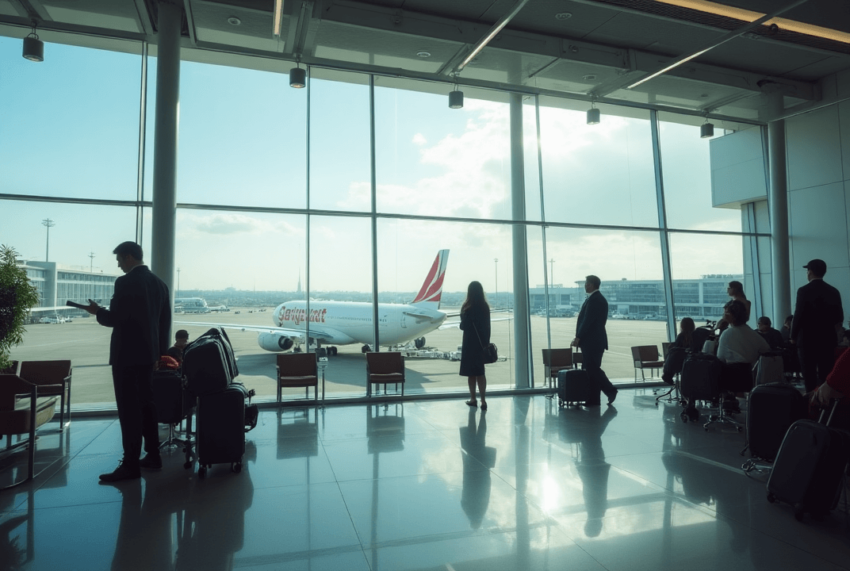
It was reported that Indian visa applications to Turkey and Azerbaijan fell sharply by 42 percent following geopolitical developments that altered traveler sentiment. Both countries’ public support for Pakistan had triggered a swift behavioral change among Indian travelers, leading to a significant drop in interest. This shift was expected to have meaningful repercussions on the travel industry, especially for airlines, tourism boards, and travel agencies connected with these destinations.
The decrease in applications reflected broader shifts in international travel patterns, prompting a rise in demand for alternate destinations such as Vietnam, Indonesia, and Egypt. The industry anticipated a need to adapt marketing strategies and travel offerings to align with the evolving preferences of Indian travelers.
Global Effects on Travelers
Globally, the change in Indian travel trends was forecast to influence international tourism dynamics significantly. Indian travelers, as a large and growing market segment, directly impacted the demand for travel routes and destinations. The political sensitivities behind the shift underscored the close connection between geopolitical factors and travel behavior, revealing how swiftly traveler choices could be affected by diplomatic relations.
Travelers were also noted to prefer destinations perceived as politically neutral or stable, driving increased interest in Southeast Asian countries and parts of the Middle East. Airlines and travel operators worldwide had to recognize these shifts to manage capacities and customer engagement effectively.
Travel Industry Adjustments and Recommendations
Travel industry stakeholders were advised to:
- Monitor geopolitical developments closely to anticipate shifts in traveler preferences.
- Diversify marketing efforts to promote emerging destinations favored by Indian travelers.
- Provide flexible booking options to accommodate uncertainties and preserve customer loyalty.
These strategies were expected to mitigate risks from sudden demand changes and help maintain steady growth despite geopolitical challenges.
Geographic and Demographic Insights
Analysis revealed that travelers aged 25 to 34 showed the highest rate of abandoning visa applications mid-process for Turkey, accounting for more than 70 percent of such cases. Women travelers exhibited a 2.3 times higher likelihood of switching entirely to destinations like Vietnam and Thailand.
Regionally, applicants from metropolitan cities such as Delhi and Mumbai reduced Turkey-bound visa applications by 53 percent, while applicants from tier 2 cities like Indore and Jaipur showed more resilience, with only a 20 percent decline. This highlighted differing levels of sensitivity and travel flexibility across India’s urban and semi-urban populations.
Group vs. Individual Traveler Behavior
The data indicated that group travel applications—typically family or larger group trips—declined by nearly 49 percent, whereas solo and couple applications saw a more modest 27 percent drop. This suggested that groups, which often require longer planning times and are more politically sensitive, reacted more decisively to the changing political landscape.
Rise of Alternative Destinations
As interest in Turkey and Azerbaijan waned, visa applications for Vietnam, Indonesia, and Egypt increased by up to 31 percent. These destinations became favored alternatives for Indian travelers seeking politically neutral and culturally rich experiences.
Historical and Political Context
The Indian traveler’s swift shift away from Turkey and Azerbaijan followed those countries’ expressions of support for Pakistan, reflecting the growing role of geopolitical events in shaping travel decisions. The pattern demonstrated how political alignments directly influence tourism flows and the economic prospects of countries reliant on international visitors.
Operational Impacts on Airlines and Visa Services
Airlines operating routes to Turkey and Azerbaijan faced sudden reductions in passenger numbers, necessitating adjustments in flight capacities. Visa processing platforms like Atlys experienced a 60 percent surge in users abandoning applications midway, reflecting a rapid behavioral response.
Meanwhile, tourism boards and visa facilitators for Vietnam, Indonesia, and Egypt leveraged the opportunity to boost their visibility in the Indian market, adjusting marketing budgets and outreach programs accordingly.
Travel Industry Preparedness
The situation emphasized the need for travel businesses to maintain agility, communicating effectively with customers about geopolitical risks and offering adaptable booking policies. Real-time monitoring and analytics were highlighted as essential tools for anticipating traveler sentiment shifts and minimizing disruptions.
Summary of Key Findings
- Visa applications by Indian travelers to Turkey and Azerbaijan dropped by 42 percent.
- Midway visa application abandonments increased by 60 percent within 36 hours of geopolitical developments.
- Group visa applications fell by nearly 49 percent, while solo and couple applications declined by 27 percent.
- Travelers aged 25-34 accounted for over 70 percent of mid-process drop-offs for Turkey.
- Women were 2.3 times more likely to switch to Southeast Asian countries.
- Applications for Vietnam, Indonesia, and Egypt surged by up to 31 percent.
- Metro cities showed a more significant decline in Turkey-bound applications compared to tier 2 cities.
